This is our regular round up of stories of progress from around the world. If you'd like to join the 51,000 people who get this in their inbox every week, you can subscribe for free below.
Good news for people
Heart disease is the top cause of death in the United States, but progress is being made, and millions of lives are being saved. The American Heart Association just released its new report showing that the country has cut heart disease death rates by 70% since 1950 and stroke death rates by nearly a third since 1998.
A ton of good news on malaria this week. Cameroon and Burkina Faso have begun their rollouts of the RTS vaccine (nearly 10,000 children have already been vaccinated), Benin just took delivery of 215,900 doses, Cambodia has announced that it's on track for malaria elimination by 2025, and another trial of the R21 vaccine in four African countries has shown that it's safe and extremely effective.
After several months of intense negotiations, the EU has reached a historic agreement on a new law that addresses gender-based violence, female genital mutilation, forced marriages, and online harassment across all member states. 'Today, we take the first step towards making Europe the first continent in the world to eradicate violence against women.' Nadja
On Monday, for the first time on Polish TV, and after eight years of a far-right government, LGBT+ activists appeared on a live broadcast in which the interviewer began by apologising after years of bigotry. Please watch this. In the 1980s, Poland led the world out of its totalitarian Soviet nightmare, and in the 2020s, it might just show us the way again.
France’s lower house of parliament has overwhelmingly approved a measure to enshrine abortion as a 'guaranteed freedom' in the constitution. 'Tonight, the assembly didn’t miss its rendezvous with the history of women and with history in general.' Guardian
Cambodia has spent $1.4 billion to help more than 1.43 million families and 360,000 pregnant women since 2019. It's made a big difference—the UNDP says the poverty rate declined to 16.6% in 2022 from 36.7% in 2014, and the number of poor people was halved from 5.6 million to 2.8 million. Khmer Times
The next time someone uses 'globalists' as a slur, you might want to show them this list of WHO projects: malaria elimination in Cabo Verde, community health in Panama, dengue control in Paraguay, Guinea worm eradication in Angola, HIV care in Cameroon, success against hepatitis B in Maldives and Sri Lanka, and fighting back against cholera outbreaks in Zambia and Zimbabwe.
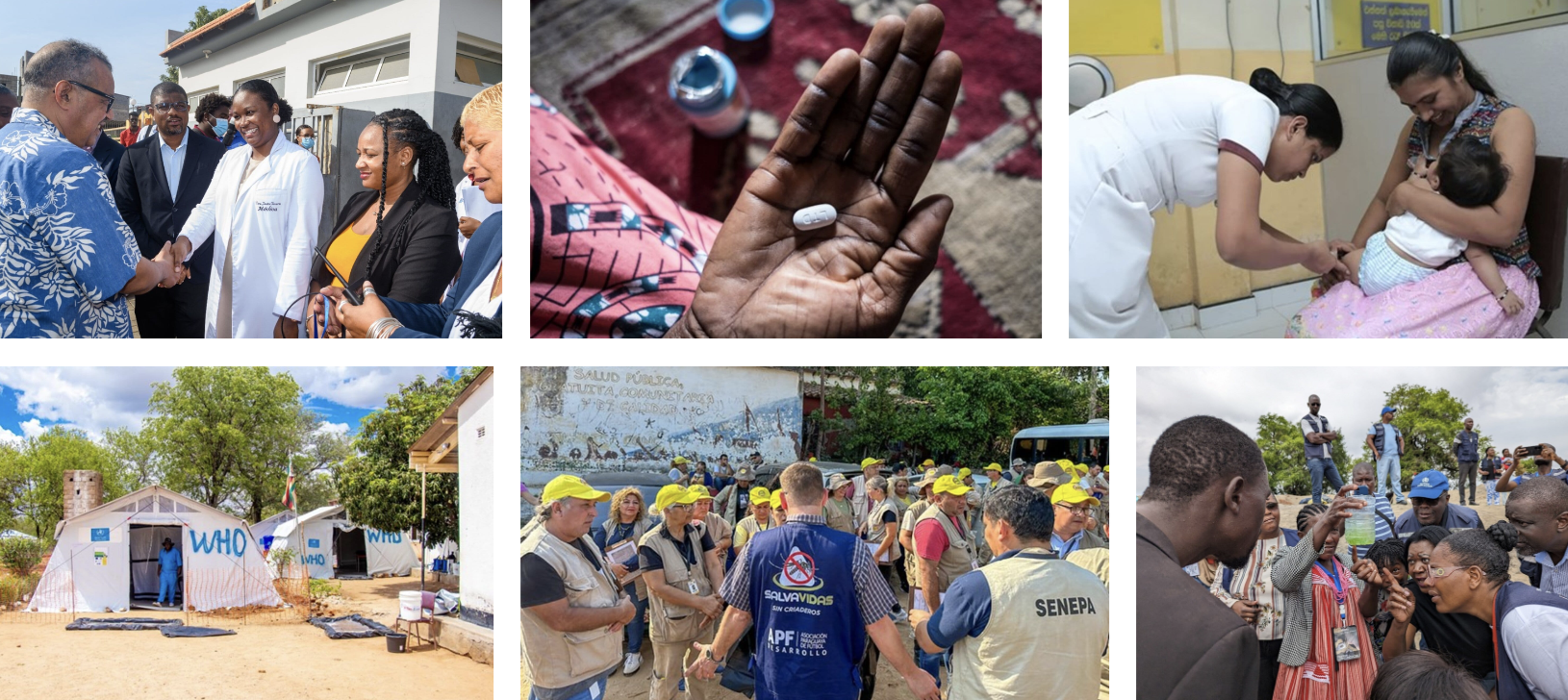
The Asian Development Bank has approved a $419.6 million loan to expand access to sanitation in the cities of Mataram, Pontianak, and Semarang. The project will strengthen sanitation systems for approximately 2.5 million people, based on an inclusive sanitation principle which aims to ensure access citywide.
Last year, Ghana doubled cash benefits for its poorest households and is set to do so again in 2024, increasing coverage to 12% of household consumption. The recent budget also includes a big boost for school meal programs, as well as a 40% increase for the National Health Insurance Authority to cover medical claims, essential medicines, and vaccines for the most vulnerable. IMF
In 2019, India launched a national program to combat air pollution in 131 cities. Since then around half of the cities for which data are available have seen improvements. This includes Delhi, which saw a 5.9% decline in PM2.5 levels from 2019 to 2023, Bengaluru (2%), Hyderabad (7%), Kolkata (16.9%), Patna (25.2%), Chennai (33.4%), and Lucknow (41.2%). New India Express
Be nice to Boomers, people, they've got it tough. At age 36-40, Millennials had a real median household income that was 18% higher than that of the previous generation at the same age... holding work hours constant, they experienced a greater intergenerational increase in real market income than Baby Boomers. US Federal Reserve
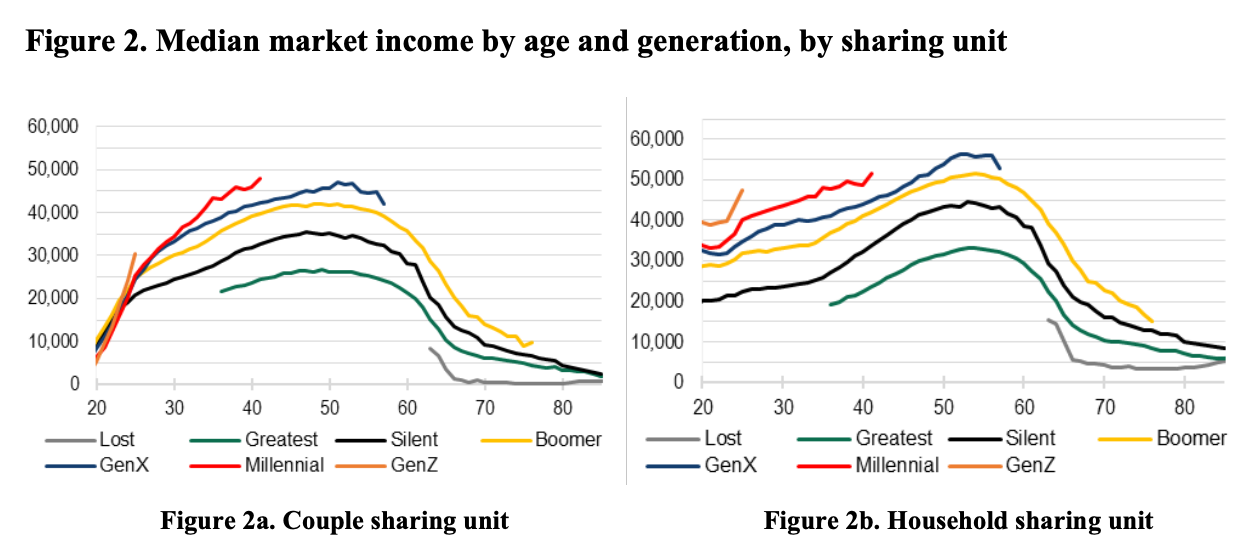
Even more good news you didn't hear about
The first endometriosis drug in four decades is now on the horizon. It looks like a safe and effective dengue vaccine is imminent too. Despite a national spike in homelessness, some regions in the United States are finding solutions. By the time this newsletter goes to press, there's a good chance Greece might have legalized same-sex marriage. Zimbabwe has abolished the death penalty, a practice introduced by British colonial administrators. A sex education bus has reached over 5,000 teens in Honduras, and it's just getting started. 95,000 people just got access to clean drinking water in Mauritania. The adult literacy rate in Tanzania has risen to 83% from 78.1% in the past decade. Poverty is plummeting in Bangladesh, thanks to a much better social safety net. Ecuador's highest court has decriminalised euthanasia. The United States reduced its backlog of immigration cases last year, after processing an unprecedented 10 million cases. Last year the FDA approved 55 novel therapeutics, the second-highest total in 30 years. Young people in the United Kingdom are drinking way less. In the 1980s, the average lifespan of a person with Down syndrome was 25 years. Today it's over 60. For people with disabilities in Kansas, a big win.
This Friday, no one eats alone.

If it bleeds, it leads
From the BBC:
Look, we're not experts, but we're guessing that if you spend years punching someone in the face with stories about how awful everything is, at some point they're going to decide they're not interested any more.

Good news for the planet
Over the past decade, the Dominican Republic has regreened one fifth of the country thanks to the Yaque River basin restoration project. The project, which uses the simple strategy of convincing landowners that reforesting their farms is beneficial for them, has reduced soil degradation by 18%. El País
For the first time in a decade, the EPA has tightened regulations on air pollution, lowering the allowable limit for annual PM2.5 levels from 12 micrograms per cubic meter to 9. The reduction is predicted to reap $46 billion in net health benefits by 2032, including prevention of up to 800,000 asthma attacks and 4,500 premature deaths. NPR
Bhutan has expanded its protected area network with a new biological corridor connecting Sakteng Wildlife Sanctuary and Bumdelling Wildlife Sanctuary in the country’s east. The region is home to hundreds of unique flora and fauna species, including the snow leopard, red panda, and Ludlow's Bhutan glory. WWF
As the site of what's been called the 'greatest river recovery in Europe,' the Mersey River is continuing to thrive with sightings of dolphins, harbour porpoises, jellyfish, and five species of sharks. Last year, 45 different kinds of fish were found in the river, triple the amount recorded in 2002. Not bad for a river declared biologically dead 40 years ago. Liverpool World
Chile has formally created the new Valle Cochamó Nature Sanctuary. It is one of the country’s largest protected areas, spanning 14 km2 of forest, glaciers, and million-year-old rocks. The region is home to 12 forest types, 50 animal species, and one of the most important water reserves in the world. Patagon Journal
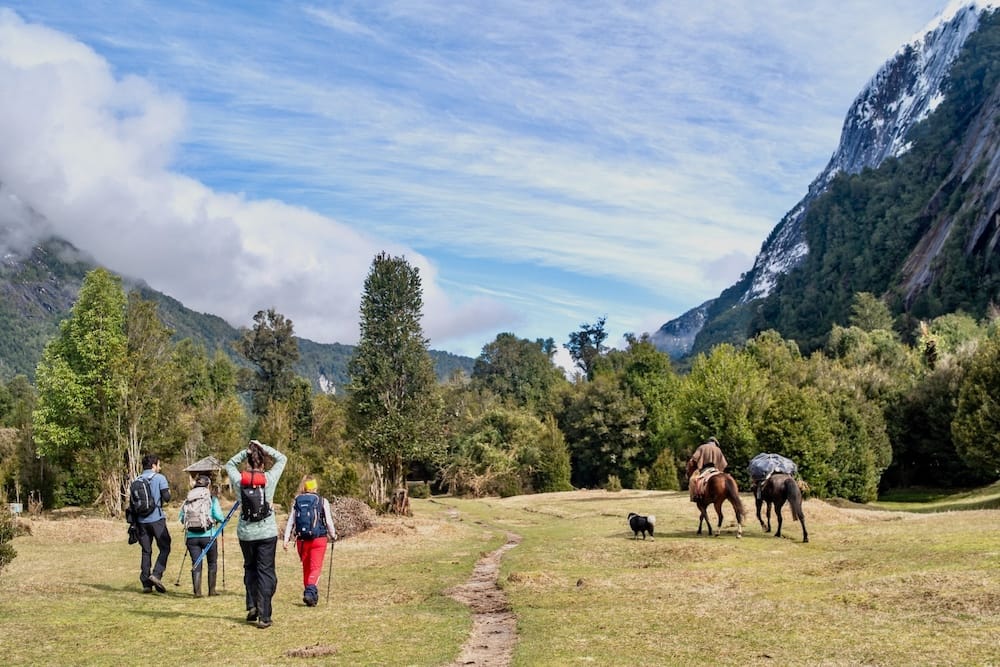
Manglares de Puerto Morelos, in the Mexican state of Quintana Roo, will protect 12 km2 of mangroves that contain 23% of the state’s biodiversity. The site is part of a larger wetland complex that includes critical habitats for the monarch butterfly, Yucatán mushroomtongue salamander, snail-eating thirst snake, and collared toucan. El Economista
The US Bureau of Land Management will invest $41 million for ecosystem restoration by supporting 74 projects in 16 states, including restoring abandoned mine lands, protecting wildlife, improving water quality, and strengthening local economies. BLM
Columbia has protected the Las Siete Sabias-Esperanza de Vida in Chocó, 303 km2 of tropical rainforest along the Pacific coast, boosting connectivity within an important biodiversity hotspot. The rainforests are home to threatened species like the Choco broad-nosed bat and the saffron-headed parrot, as well as the Cabí River, a vital water source for approximately 108,000 people. AAF
A $15 million land purchase in Alabama will protect 32 km2 of the Mobile-Tensaw Delta, dubbed ‘America’s Amazon’ for its remarkable biodiversity and wildlife. The deal, which is called Land Between the Rivers, is a collaboration between The Nature Conservancy, a private donor, and outdoor clothing company Patagonia. AL
This is one of the most important conservation victories that we’ve ever been a part of. It’s protected a vitally important complex of land, almost 8,000 acres, critically important to the health of the Mobile Delta and then, by extension, Mobile Bay and the Gulf of Mexico.
Mitch Reid, The Nature Conservancy
After years of dwindling numbers for Florida manatees, wildlife officials say numbers are bouncing back thanks to continued efforts by the state. In Tasmania, over 80 critically-endangered orange-bellied parrots have returned to their breeding ground, the highest number in 15 years; and for the first time in 600 years, giant tortoises are roaming Madagascar, thanks to a six-year relocation project.
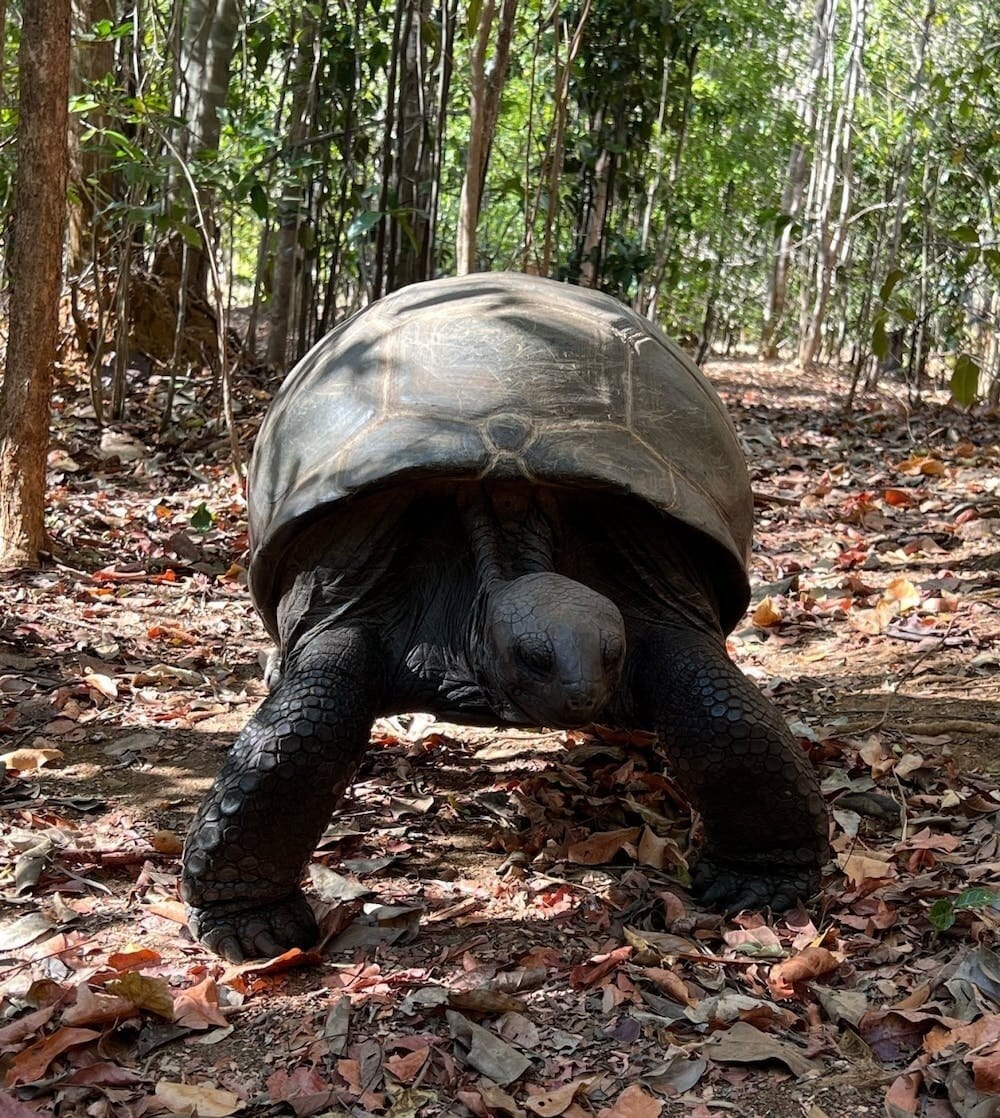
More music for those who will listen
It’s been a busy month for global advocacy group Oceana: new MPAs have been created in Mexico, Chile, the Canary Islands, the Ibiza Channel, and the Strait of Gibraltar. Over the past century, European bison have made an amazing comeback to 7,000 wild animals across the continent. Arizona now uses 3% less water than it did in 1957, despite its population mushrooming more than 555%. The restoration of Yundang Lake in China is a testament to the power of regenerative approaches. A new project is aiming to protect South America's Chaco-Pantanal Wildlands, spanning 1.2 million km2 across Argentina, Bolivia, Brazil, and Paraguay. Since 2007, Project Hariyali has planted over 20 million trees in India. A new conservation strategy in Africa is reversing the trend of illegal wildlife trafficking by transforming reformed poachers into wildlife advocates. The US military is taking on forever chemicals. Northwestern University chemists have developed a new catalyst that completely breaks down the plastic used by fishing nets in minutes. New research has found 8,481 potential transboundary conservation areas in Africa, covering an area of nearly 2 million km2—half the size of the EU.
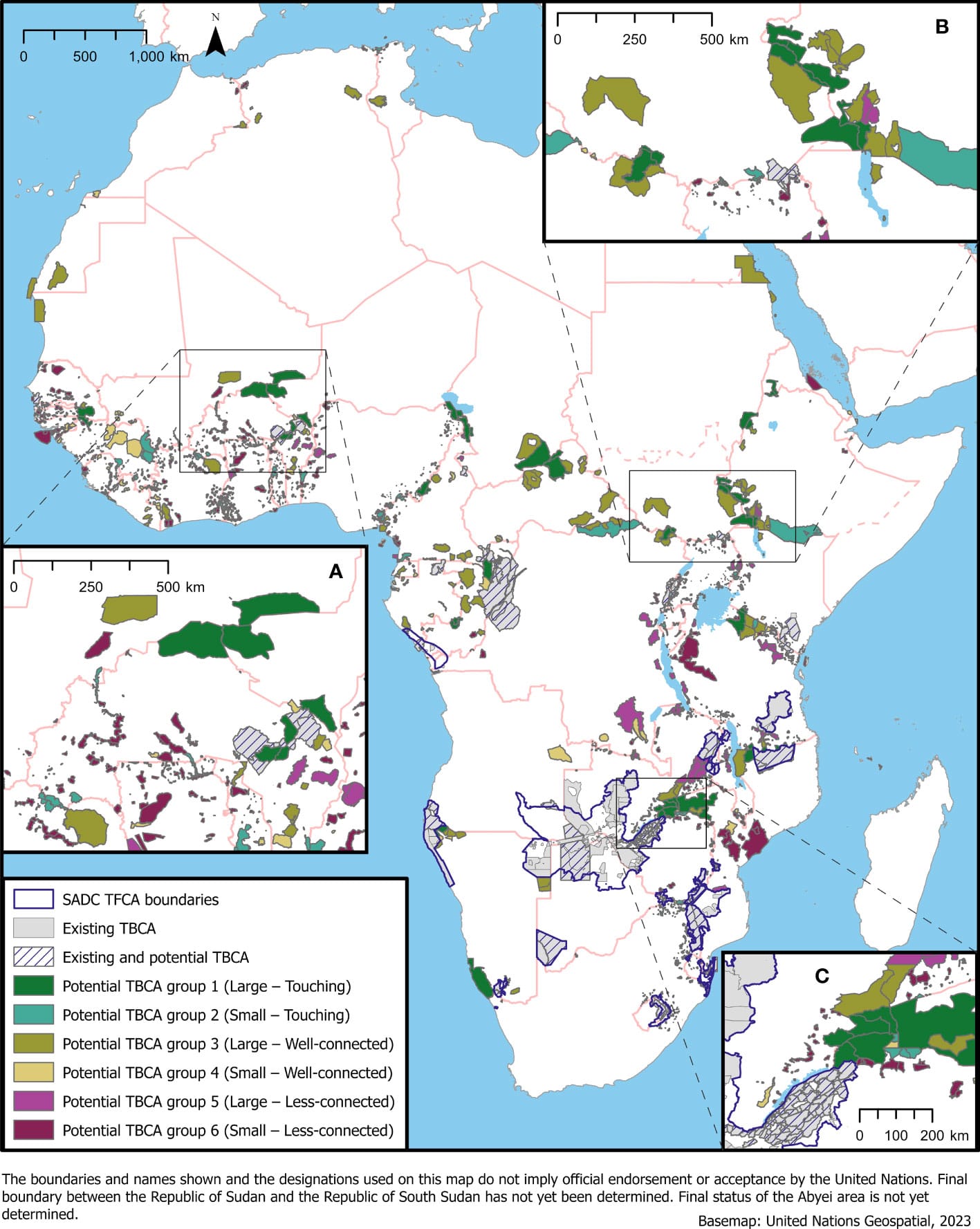
Saving the world is cheaper than ruining it
Last week we reached a grim milestone: global warming exceeded 1.5°C over the past 12 months. It's a devastating piece of news, but there is a silver lining amidst the crisis. We're at a crucial juncture, facing grave climate risks yet also at the beginning of a transformative shift towards renewable energy. The end of the fossil fuel era is assured; the only question is whether we can move fast enough to limit the worst of the climate chaos.
A decade ago the trajectory was bleak, with global emissions on an unyielding ascent, leading many to predict a future smothered in coal smoke, where emissions could potentially double or triple by the end of this century. However, a pivotal change occurred: emissions started to plateau, underpinned by the plummeting prices of energy technologies like solar, wind, and batteries and their subsequent deployment.
This levelling-off of emissions signals a departure from our worst fears. It doesn't stop the accumulation of CO2 in our atmosphere or halt global warming, but it slows the pace significantly. Current models, informed by the likes of the IEA and UNEP, now suggest we are on track to limit warming to around 2.5°C, a scenario more tempered than previously feared and with plenty of space still left for improvement.
We know now that economic growth can be decoupled from carbon emissions, challenging the inevitability of a warming world. Despite the stark reminder that we're not on track to meet our ambitious climate targets yet, the last decade's progress is undeniable. It underscores a critical message: while the challenge is immense, despair is unproductive. The strides made in clean energy signal that change is possible—as our lead story this week shows.

You can almost hear the editors at the The Wall Street Journal gritting their teeth. After decades of stumping for fossil fuels, and then doing everything in their power to slow walk the transition, can you imagine what it must have felt like to have to publish this? That's the problem with facts—they have a funny way of catching up with everyone...
That's all for this edition, please make sure you open next week's email, where we'll be announcing our news.
Thanks for reading.
With love,
Gus and Amy



